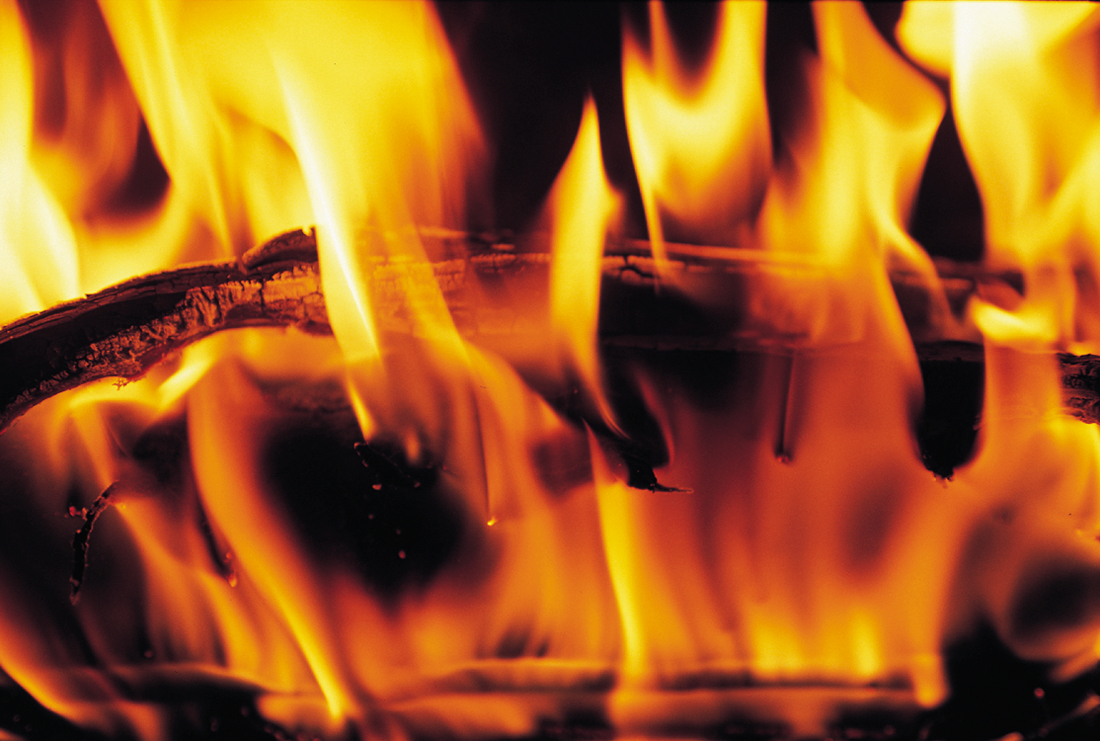About…
fire in the Bible

-
Sacred fires
The sacrifices to God were consumed by fire (Genesis 8:20). The ever-burning fire on the altar was first kindled from heaven (Leviticus 6:9, 13; 9:24), and afterwards rekindled at the dedication of Solomon’s temple (2 Chronicles 7:1, 3).
-
Fire from heaven
“And David built there an altar to the Lord, and offered burnt offerings and peace offerings, and called on the Lord; and He answered him from heaven by fire on the altar of burnt offering.” —1 Chronicles 21:26 NKJV
“When Solomon had finished praying, fire came down from heaven and consumed the burnt offering and the sacrifices; and the glory of the Lord filled the temple.” —2 Chronicles 7:1 NKJV
“So Elijah answered and said to the captain of fifty, “If I am a man of God, then let fire come down from heaven and consume you and your fifty men.” And fire came down from heaven and consumed him and his fifty.” —2 Kings 1:10 NKJV
“Then the Lord rained brimstone and fire on Sodom and Gomorrah, from the Lord out of the heavens.” —Genesis 19:24 NKJV
The expressions “fire from heaven” and “fire of the Lord” may sometimes refer to lightning, but clearly not always.
During the Great Tribulation, the “beast” who assists the Great Antichrist and Satan will deceive the world with wonders to induce many to worship the Antichrist.
“He performs great signs, so that he even makes fire come down from heaven on the earth in the sight of men.” —Revelation 13:13 NKJV
Nevertheless, whatever power he has is far less than God’s, and he and the Anti-Christ will be destroyed at the end of the Tribulation period.
Fire from heaven after the Millennium
When Satan is loosed on Earth at the end of the Millennium, God will destroy all those who gather against Christ and the children of God.
“Now when the thousand years have expired, Satan will be released from his prison and will go out to deceive the nations which are in the four corners of the earth, Gog and Magog, to gather them together to battle, whose number is as the sand of the sea. They went up on the breadth of the earth and surrounded the camp of the saints and the beloved city [Jerusalem]. And fire came down from God out of heaven and devoured them.” —Revelation 20 :7-9
-
Strange fire
Fire for a sacred purpose obtained from somewhere other than from the holy altar was called “strange fire” (Leviticus 10:1-2; Numbers 3:4).
-
Cremation
The animals slain for sin offerings were afterwards consumed by fire outside the camp (Leviticus 4:12, 21; 6:30; 16:27; Hebrews 13:11).
The bodies of infamous persons who were executed were also sometimes burned (Joshua 7:25; 2 Kings 23:16).
\
-
Domestic fires in biblical times
Fire was used for various domestic purposes, such as cooking, baking, smoking meats or fish, baking pottery, blacksmithing, smelting, drying, warmth, light, etc. (Jeremiah 36:22; Mark 14:54; John 18:18).
But on Sabbath no fire for any domestic purpose was to be kindled (Exodus 35:3; Numbers 15:32-36).
-
Punishment of death by fire
This severe punishment was inflicted on those who were guilty of certain forms of unchastity and incest (Leviticus 20:14; 21:9).
The burning of captives in war was not unknown among the Jews (2 Samuel 12:31; Jeremiah 29:22).
-
River of fire
“A river of fire was flowing” in Daniel’s prophetic of vision of the Ancient of Days (Daniel 7:9).
“A river of fire was flowing
And coming out from before Him;
Thousands upon thousands were attending Him,
And myriads upon myriads were standing before Him;
The court sat,
And the books were opened.” —Daniel 7:10 NASB -
Fire in war
In war, fire was used in the destruction of cities, as Jericho (Joshua 6:24), Ai (8:19), Hazor (11:11), Laish (Judges 18:27), etc.
The war-chariots of the Canaanites were burnt (Joshua 11:6, 9, 13).
The Israelites burned the idolatrous images (2 Kings 10:26; Revised King James Version, “pillars”) of the house of Baal. These objects of worship seem to have been of the nature of obelisks, and were sometimes evidently made of wood.
Torches were sometimes carried by the soldiers in battle (Judges 7:16).
 Joshua burned the city of Hazor—What have archaeologists discovered about the biblical city of HAZOR? Answer (site of conquests, triumphs, sin, defeat and major earthquake)
Joshua burned the city of Hazor—What have archaeologists discovered about the biblical city of HAZOR? Answer (site of conquests, triumphs, sin, defeat and major earthquake) -
Lightning
Lightning is a type of fire in the sky (see lightning).
-
Chariot of fire with horses of fire
“Then it happened, as they [Elisha and Elijah] continued on and talked, that suddenly a chariot of fire appeared with horses of fire, and separated the two of them; and Elijah went up by a whirlwind into heaven.” —2 Kings 2:11 NKJV
-
Symbolic fire
Figuratively, fire is a symbol of Jehovah’s presence and the instrument of his power (Exodus 14:19; Numbers 11:1, 3; Judges 13:20; 1 Kings 18:38; 2 Kings 1:10, 12; 2:11; Isaiah 6:4; Ezek. 1:4; Rev. 1:14, etc.).
God’s word is also likened unto fire (Jeremiah 23:29).
It is referred to as an emblem of severe trials or misfortunes (Zechariah 12:6; Luke 12:49; 1 Corinthians 3:13, 15; 1 Peter 1:7), and of eternal punishment (Matthew 5:22; Mark 9:44; Rev. 14:10; 21:8).
The influence of the Holy Ghost is likened unto fire (Matthew 3:11). His descent was denoted by the appearance of tongues as of fire (Acts 2:3).
More information
- light
- firebrand
- firepan
- torches
- lamp
- hearth
- oven
- furnace
- altar
- burnt offering
- Moloch—false God to whom human sacrifices were made in fire, including young children
- Hell
- ranges
- lightning
- miracles involving fire
- fiery serpent